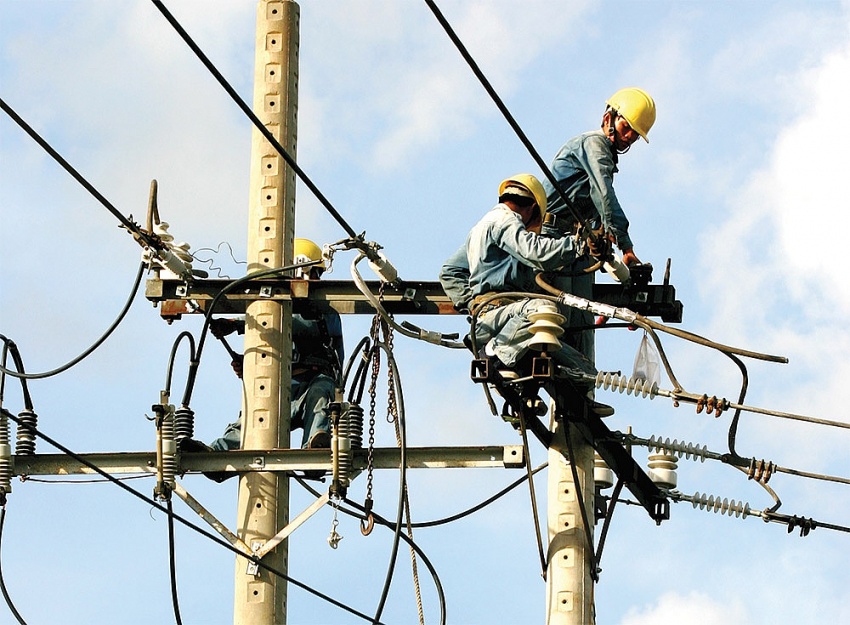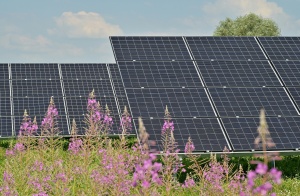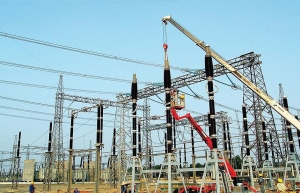DPPA streamlining closer to acceptance
The latest draft direct power purchase agreement (DPPA) mechanism, set to be submitted to the government this week, outlines the two models of using private transmission lines or using the national grid.
 |
| Implementation has been slow thus far of the creation of a competitive electricity market, photo Le Toan |
The Ministry of Industry and Trade is pushing rooftop solar for self-consumption. Specifically, the draft on the DPPA mechanism stipulates that organisations and individuals using electricity produced from the 22kV voltage level, with an average monthly consumption of 500,000kWh, can participate.
Deputy Prime Minister Tran Hong Ha has asked for clarity on the appropriateness of regulations on customers with average monthly consumption of 500,000kWh. At the same time, there must be consideration on having a capacity limit between manufacturers and commercial services to ensure the rights and obligations of parties participating in the mechanism; and policies to encourage businesses to consume renewable energy to receive green credits.
A Vietnam Chamber of Commerce and Industry (VCCI) report published last week suggested that with direct electricity trading through private lines, the impact on the national electricity system is negligible, and so it should be expanded to all customers.
“The draft stipulates that customers who buy electricity directly must invest in grid infrastructure and have a team to manage and operate the grid. It should be left to the two parties to negotiate,” the report said.
Ngo Duc Lam, former deputy director of the Institute of Energy under the Ministry of Industry and Trade (MoIT), said that there are two details related to the application subjects that need attention.
“We should expand the subjects allowed to buy and sell electricity directly by lowering customers’ monthly electricity consumption, and we should not give specific figures on electricity consumption output to apply to this mechanism,” Lam said.
To encourage businesses to use more renewable electricity and to reach the goal of reducing net emissions, there needs to be a longer-term electricity trading mechanism, he added.
“Because in general, to have a truly competitive electricity market, it must still be open to those participating in direct electricity trading, regardless of whether customers are large or small,” he said.
DPM Ha stated in a meeting on May 14 that although the National Power Development Plan, the Law on Electricity, and other relevant documents all call for the creation of a competitive electricity market, the implementation has been far too sluggish because of the technical issues raised in the draft mechanism.
Conditions are more flexible now that certain previous requirements have been removed and specific criteria for choosing parties to take part in the pilot programme have been provided in the MoIT’s draft, Ha said.
Many investors, international organisations, and electricity customers have expressed interest in participating in the DPPA mechanism and hope that the government will soon issue the mechanism to help achieve sustainable development goals.
Samsung, Apple, Heineken, and Meta have all sent letters to the prime minister and the MoIT to show support for the DPPA mechanism, the ministry said.
The MoIT also said in its impact assessment report of the DPPA mechanism that 24 renewable energy projects with an installed capacity of more than 1,770MW want to participate. Some 17 projects with capacity at 2,835MW are considering participation conditions, and 26 projects responded that they did not want to participate.
DPM Ha also requested that it be necessary to clearly define the responsibilities of the MoIT, the Ministry of Natural Resources and Environment, and Vietnam Electricity on certification procedures and publicising information about businesses consuming clean and green electric energy to be granted credit.
Industrial park investors are also major customers, and the customer base must be expanded to include service providers and not simply manufacturers, Ha added.
 | Commerce chamber advocates power purchasing agreement, bypassing state utility EVN The Vietnam Chamber of Commerce and Industry (VCCI) has recommended allowing all businesses and individuals to purchase renewable energy directly, rather than through state utility Vietnam Electricity (EVN). |
 | DPPA decree may require supplements The draft decree on direct power purchase agreements, if adopted, will be a convenient mechanism for both renewable energy power generation projects and large customers, but there are still concerns about power transmission and expanding the number of electricity buyers. |
What the stars mean:
★ Poor ★ ★ Promising ★★★ Good ★★★★ Very good ★★★★★ Exceptional
Related Contents
Latest News
More News
- $100 million initiative launched to protect forests and boost rural incomes (January 30, 2026 | 15:18)
- Trung Nam-Sideros River consortium wins bid for LNG venture (January 30, 2026 | 11:16)
- Vietnam moves towards market-based fuel management with E10 rollout (January 30, 2026 | 11:10)
- Envision Energy, REE Group partner on 128MW wind projects (January 30, 2026 | 10:58)
- Vingroup consults on carbon credits for electric vehicle charging network (January 28, 2026 | 11:04)
- Bac Ai Pumped Storage Hydropower Plant to enter peak construction phase (January 27, 2026 | 08:00)
- ASEAN could scale up sustainable aviation fuel by 2050 (January 24, 2026 | 10:19)
- 64,000 hectares of sea allocated for offshore wind surveys (January 22, 2026 | 20:23)
- EVN secures financing for Quang Trach II LNG power plant (January 17, 2026 | 15:55)
- PC1 teams up with DENZAI on regional wind projects (January 16, 2026 | 21:18)

 Tag:
Tag:




















 Mobile Version
Mobile Version